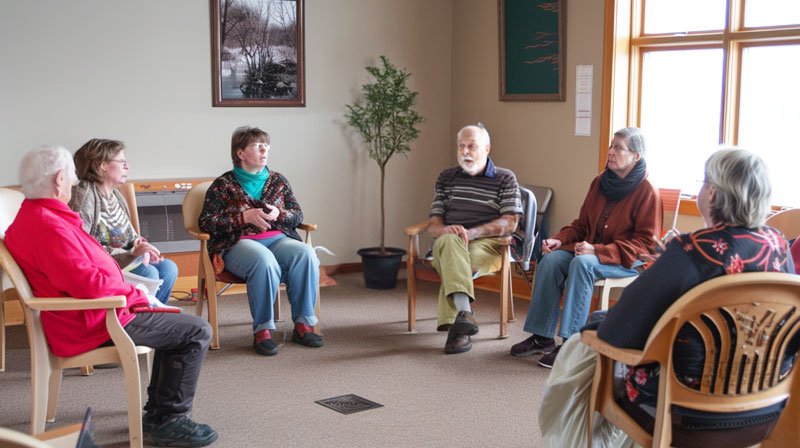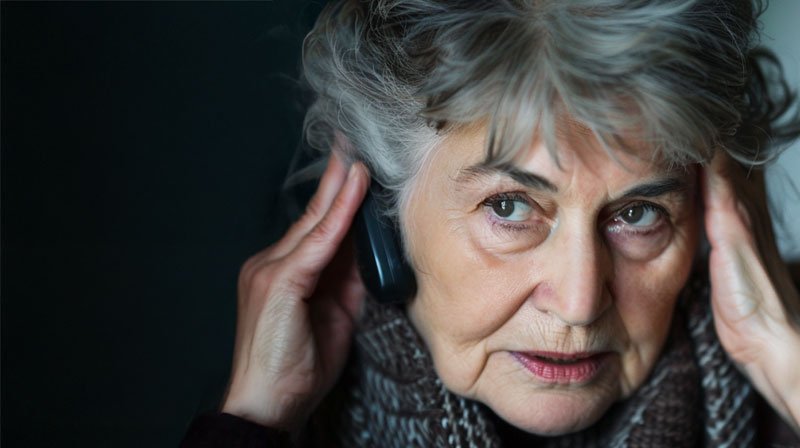The Importance of Social Connections After Loss: Rebuilding Life as a Widow
The loneliness and uncertainty that follow the loss of a spouse can be overwhelming; it’s one of the most profound and life-altering experiences a person can endure. For many widowed individuals, the prospect of socializing again feels daunting—especially for those without a strong family or friend network. However, human connection remains a vital component of emotional well-being, even in the face of profound loss. While stepping back into social interactions may seem difficult, nurturing new relationships and maintaining social connections can provide immense healing and support.
Why You Might Have to Make the First Call
After loss, it can feel as though the world should be reaching out to you—friends, family, neighbors. And while some people do, many others hesitate. They may not know what to say, fear upsetting you, or assume you need space. The unfortunate reality is that people often wait for cues, and if you withdraw, they may mistake your silence for a desire to be left alone.
I learned this firsthand. I expected my phone to ring, for invitations to arrive, but when they didn’t, I felt abandoned. Eventually, I realized that if I wanted connection, I might have to be the one to take the first step. That meant sending a text, making a call, or reaching out for a coffee date—even when it felt unfair or uncomfortable. And more often than not, I was met with warmth and relief from people who had wanted to reach out but weren’t sure how.
Taking the first step can be hard, but it can also be empowering. It puts you in control of your healing journey and reminds you that connection is still within reach.
The Emotional and Physical Impact of Isolation
After Jay died, I remember waking up to a quiet house that once felt full of life. The absence was deafening, and I withdrew from the world, unsure of how to engage with people again. I know I am not alone in this experience. Many widows and widowers struggle with facing social situations without their loved one by their side.
However, I also learned that prolonged isolation could take a serious toll. Depression, anxiety, and even physical health issues like high blood pressure, heart disease, and cognitive decline are more common among those who experience chronic loneliness. Studies show that loneliness can be as harmful to health as smoking 15 cigarettes a day. It has been linked to increased inflammation in the body, which can weaken the immune system and make individuals more susceptible to illnesses. Additionally, research suggests that social isolation can accelerate memory loss and increase the risk of developing conditions such as dementia. The mind and body thrive on interaction, and without it, overall health can deteriorate significantly.
On the days when I forced myself to step outside, to say hello to a neighbor, or to accept an invitation for lunch, I felt a small but noticeable shift inside me. Social connections provide emotional support, reduce stress, and increase overall happiness. Even the tiniest interactions can have profound benefits.
Overcoming the Fear of Socializing
For many widowed individuals, the idea of re-entering the social world is intimidating. The fear of judgment, rejection, or simply not knowing what to say can prevent us from taking the first step.
I remember the first time I attended a gathering after my spouse’s passing—it felt like stepping into a world where I no longer belonged. The conversations around me felt foreign, filled with talk of weekend plans, anniversaries, and shared family moments that I no longer had. I felt like an observer rather than a participant, standing at the edges of a life that had once included me. My mind raced with questions—was I still the same person without my partner? Did people see me differently now? I felt exposed, like a puzzle piece that no longer fit into the picture, and the weight of that loneliness was crushing. It was easier to retreat, but I also knew that doing so would only deepen my isolation.
And I also discovered that I wasn’t the only one feeling this way. Others, too, were navigating loss and struggling with social re-entry. Over time, I found small ways to ease back into connections:
- Start Small: I began with brief interactions; a wave to a neighbor, a quick trip to a familiar coffee shop. Each little step helped rebuild my confidence.
- Join Support Groups: Connecting with others who had experienced loss made me feel less alone. It provided a safe space to share my emotions and receive encouragement from people who truly understood. If stepping into an in-person group feels too overwhelming at first, social media can be a helpful way to ease into social interaction. Online communities for widowed individuals offer forums, chat groups, and support networks where you can connect with others from the comfort of your home. Engaging in discussions, sharing your story, or simply reading about others’ experiences can be a gentle first step toward rebuilding a sense of connection and support.

- Explore New Interests: I signed up for a grief yoga class, and while I was hesitant at first, I found that focusing on an activity—surrounded by others who were grieving—helped me feel more comfortable around new people. Beyond that, yoga provided me with a sense of calm and inner peace that I hadn’t felt in a long time. The deep breathing and gentle movements helped release the tension I had been holding in my body from months of caregiving and grief. It also gave me a space to process my emotions without words, something I desperately needed when talking about my loss felt too overwhelming. Over time, yoga became more than just a class—it became a tool for healing, helping me reconnect with my body, quiet my mind, and find a sense of strength I didn’t know I still had.
- Seek Professional Help: When my grief felt too overwhelming, I turned to a counselor. It was one of the best decisions I made in helping myself navigate life after loss. My counselor was also a widow, so I felt like she was the absolute best person to hear my pain and offer the right type of support.
Finding Meaning in New Connections
No one can replace the person we’ve lost. But over time, I learned that forming new relationships—whether friendships, support groups, or community bonds—can bring comfort and a renewed sense of purpose. Meaningful social interactions have:
- Provided companionship during my loneliest moments.
- Offered new perspectives and shared experiences that helped me heal.
- Created a support network that gave me both emotional encouragement and practical help in daily life.
One of the community groups I joined was a local biking club. Cycling around the world was something Jay and I were passionate about, and with him gone… my biking went away too. I was, in fact, nervous about biking alone as he was my sherpa, my bike mechanic, and my cheerleader when we cycled together! By joining this bike club, I was able to honor the activity that he and I loved, and I found a way to bring it back into my life safely and simply.
Reconnecting with others does not mean forgetting the past. Instead, it allows us to honor our loved ones while continuing to grow and engage with life in a meaningful way.
Embracing Life After Loss
Moving forward after loss is not about replacing what was lost but about adapting to a new way of living. Social connections have helped me redefine my purpose and allowed joy to re-enter my life in unexpected ways. Whether through old friends, new acquaintances, or community involvement, each connection has been a steppingstone toward healing and resilience.
I won’t say the journey has been easy, and there are still days when loneliness weighs heavily on me. But I have learned that taking even small steps toward social engagement can make a significant difference. Every smile, conversation, and shared experience helps rebuild a life enriched with connection, support, and hope.
No one should have to navigate loss alone. If you are feeling isolated, I encourage you to take a small step today—send a text, make a call, or take a short walk in a place where you might meet someone. Even the smallest connections can help you find strength, understanding, and a renewed sense of belonging in the world.
It has worked for me; maybe it will help you, too.

